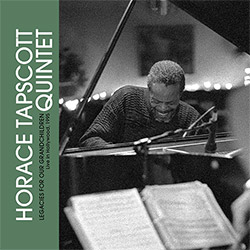
The French Dark Tree label continues its curation of the unreleased material of West Coast pianist and band leader Horace Tapscott with this exuberant and substantial collection of live sessions at Catalina's Bar & Grill in Hollywood with Michael Session on saxophones, Thurman Green on trombone, Roberto Miranda on double bass, Fritz Wise on drums and vocal stylist Dwight Trible.
In Stock
Quantity in Basket: None
Log In to use our Wish List
Shipping Weight: 3.00 units
EU & UK Customers:
Discogs.com can handle your VAT payments
So please order through Discogs
Sample The Album:
Horace Tapscott-piano
Michael Session-soprano saxophone, alto saxophone, tenor saxophone
Thurman Green-trombone
Roberto Miranda-double bass
Fritz Wise-drums
Dwight Trible-vocals
Click an artist name above to see in-stock items for that artist.
UPC: 3473351400459
Label: Dark Tree Records
Catalog ID: DTRS-16
Squidco Product Code: 32154
Format: CD
Condition: New
Released: 2022
Country: France
Packaging: Cardboard Gatefold
Recorded live at Catalina’s Bar and Grill, in Hollywood, California, on December 19th, and 20th, 1995, Wayne Peet.
"Since its founding in 2011, the French record label Dark Tree has been issuing a "Roots Series" documenting previously unreleased performances of the Los Angeles jazz avant-garde from the 1970s through the '90s. Among the best of those releases have been several from Pan Afrikan Peoples Arkestra led by pianist/composer/conductor Horace Tapscott. Legacies for Our Grandchildren: Live in Hollywood 1995 is one of only two quintet albums led by the pianist. A community activist in South Central LA, Tapscott often worked with a rotation of musicians; some well-established, others local talent. In his larger ensemble recordings, there are frequently unknown players who have gone uncredited. Legacies... includes reed player Michael Session from the larger ensemble, bassist Roberto Miranda of Tapscott's sextet, and trombonist Thurman Green, who worked extensively with Gerald Wilson's Orchestra.
The tighter, more focused quintet format is a setting in which Tapscott and his band can be more individually appreciated. But the theatrical feel of his live work with the Arkestra comes through in "Motherless Child" with a dramatic vocal contribution from Dwight Trible. Tapscott's original "Breakfast at Bongo's" is seventeen-plus minutes of blistering swing with tenor saxophonist Session tearing up the stage. Impressive solos from the leader and drummer Fritz Wise direct the piece back to a full unit closing. Trible returns on "Close to Freedom," a piece saved from gaudiness by Tapscott's intervention. "The Theme" is an enthusiastically free improvisation dominated by a piano and drums duo. The album closes with "Little Africa," penned by occasional Arkestra pianist Linda Hill and previously recorded by that group, and by Trible.
Tapscott began amassing what would become a large collective in 1961, and from that community, he assembled distinct groups for projects. Because he elected to play within confined geography, he never achieved his deserved level of fame. Tapscott experimented and though it did not always work, it was fire when it did. "Ballad for Deadwood Dick" and "Breakfast at Bongo's" account for more than a half-hour of explosively good jazz. Legacies for Our Grandchildren: Live in Hollywood 1995 was culled from several performances at Catalina Bar & Grill on Sunset Boulevard. Kudos to Dark Tree for giving Tapscott a second life."-Karl Ackermann, All ABout Jazz
Get additional information at All About Jazz
Artist Biographies
• Show Bio for Horace Tapscott "Horace Elva Tapscott (April 6, 1934 – February 27, 1999) was an American jazz pianist and composer. He formed the Pan Afrikan Peoples Arkestra (also known as P.A.P.A., or The Ark) in 1961 and led the ensemble through the 1990s. Tapscott was born in Houston, Texas, and moved to Los Angeles, California, at the age of nine. By this time he had begun to study piano and trombone. He played with Frank Morgan, Don Cherry, and Billy Higgins as a teenager. After service in the Air Force in Wyoming, he returned to Los Angeles and played trombone with various bands, notably Lionel Hampton (1959–61). Soon after, though, he quit playing trombone and focused on piano. In 1961 Tapscott formed the Pan Afrikan Peoples Arkestra, with the aim of preserving, developing and performing African-American music. As his vision grew, this became just one part of a larger organization in 1963, the Underground Musicians Association (UGMA), which later changed name to the Union of God's Musicians and Artists Ascension (UGMAA). Arthur Blythe, Stanley Crouch, Butch Morris, Wilber Morris, David Murray, Jimmy Woods, Nate Morgan and Guido Sinclair all performed in Tapscott's Arkestra at one time or another. Tapscott and his work are the subjects of the UCLA Horace Tapscott Jazz Collection. Enthusiasts of his music formed two labels in the 1970s and 1980s, Interplay and Nimbus, for which he recorded." ^ Hide Bio for Horace Tapscott • Show Bio for Michael Session Michael Session is a jazz saxophonist, known for the groups Horace Tapscott Quintet, The Pan-Afrikan Peoples Arkestra, A Touch Of Jazz, Brüning V. Alten's Sunrise Orchestra, Dennis Gonzalez New Dallasangeles, Jazz Workshop Ensemble, Silvan Koopmann Bigband, and The Gathering. ^ Hide Bio for Michael Session • Show Bio for Thurman Green "Thurman Green (August 12, 1940 - June 19, 1997) was an American jazz trombonist. He was a member of the Horace Tapscott Quintet and the Clayton-Hamilton Jazz Orchestra. Green and Hamiet Bluiett were at the Navy School of Music together in 1962. More than thirty years later, Bluiett produced and performed on Green's only album as a leader, Dance of the Night Creatures on Mapleshade Records. They began recording in 1994, and Green died in 1997 at the age of 57. Mapleshade released the album in 1999." ^ Hide Bio for Thurman Green • Show Bio for Roberto Miranda "Roberto Miranda, Bass. Adjunct Assoc. Professor, Global Jazz Studies. String bass; Director, Jazz Combo Roberto Miranda is a dynamic bassist who is noted for his inventive, high-energy improvisations. He is adept in both soulful passages and fleet percussive lines, and is fluent in all jazz idioms. He has toured, played and recorded with an impressive array of jazz artists, including Kenny Burrell, Horace Tapscott, Bobby Bradford, John Carter, David Murray, Cecil Taylor, Charles Lloyd, and Bobby Hutcherson. He has recorded extensively including albums with his own group, showcasing his successful blend of African-American, Latin, and experimental jazz. Miranda released his CD With Groaning Too Deep for Words in 2002. He also wrote the appendix for the book The Dark Tree, by Steven L. Isoardi (University of California Press, 2006). As a young player Miranda studied with jazz legends Ray Brown, Red Mitchell, and master classical musicians Bob Stone, Dennis Trembly and Fred Tinsley of the Los Angeles Philharmonic. While studying for his M.M. at USC, he received two grants from the National Endowment for the Arts. These grants enabled him to score two compositions for symphony strings, jazz bass, bassoon, and trombone, one of which was performed by the Carson Symphony Orchestra. Today, Miranda balances a dual career as a performer and teacher. Besides teaching for the UCLA Jazz Studies Program, he is a retired middle school teacher for the Los Angeles Unified School District, where he worked for twenty-four years." ^ Hide Bio for Roberto Miranda • Show Bio for Fritz Wise Fritz Wise is an American drummer, best known for his work with the Horace Tapscott Quintet. ^ Hide Bio for Fritz Wise • Show Bio for Dwight Trible "Dwight Trible is an American jazz singer, living in Los Angeles. He has made albums in collaboration with Carlos Gabriel Niño, John Beasley, and Matthew Halsall, releasing them on Ninja Tune and Gondwana Records. He was an original member of Pure Essence. Mike Hobart, wrote in the Financial Times that "Trible has been forging his particular slant on spiritual-modal jazz for decades, delivering his love-is-the-answer message with clear diction, rich tones and a beautifully controlled vibrato. Trible's sonic range adds a dash of Isaac Hayes gravel to the imperious sonorities of Barry White, and, like them, he steeps his voice in the inflections of gospel-soul and the blues. But, having worked with the likes of Pharaoh Sanders and Charles Lloyd, he is equally in control of the nuances and demands of jazz." Andrew Gilbert wrote in JazzTimes that "few musicians have done more to cultivate the L.A. [jazz] scene over the past four decades" than Trible. " ^ Hide Bio for Dwight Trible
11/20/2024
Have a better biography or biography source? Please Contact Us so that we can update this biography.
11/20/2024
Have a better biography or biography source? Please Contact Us so that we can update this biography.
11/20/2024
Have a better biography or biography source? Please Contact Us so that we can update this biography.
11/20/2024
Have a better biography or biography source? Please Contact Us so that we can update this biography.
11/20/2024
Have a better biography or biography source? Please Contact Us so that we can update this biography.
11/20/2024
Have a better biography or biography source? Please Contact Us so that we can update this biography.
Track Listing:
1. Ballad for Deadwood Dick 14:59
2. Motherless Child 12:50
3. Breakfast at Bongo's 17:06
4. Close to Freedom 08:23
5. The Theme 05:35
6. Little Africa 08:58
Improvised Music
Jazz
Free Improvisation
West Coast/Pacific US Jazz
Sextet Recordings
Song Based Music
New in Improvised Music
Recent Releases and Best Sellers
Search for other titles on the label:
Dark Tree Records.


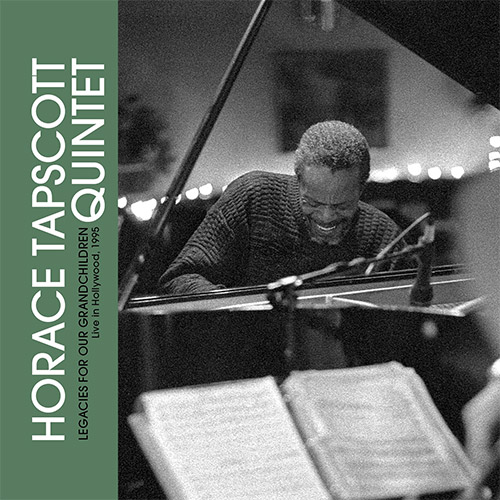
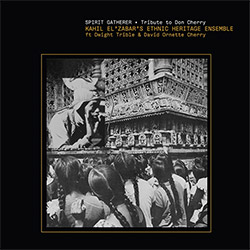
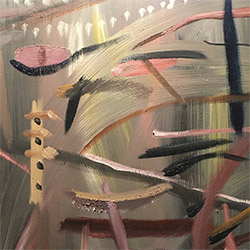

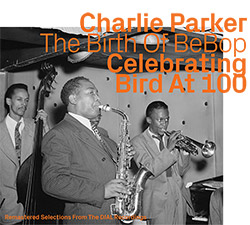

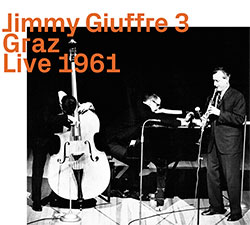
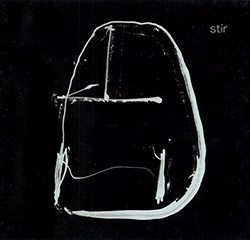
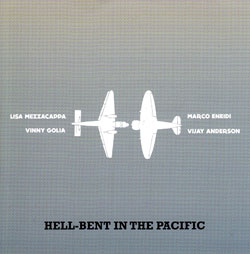
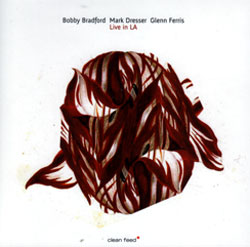
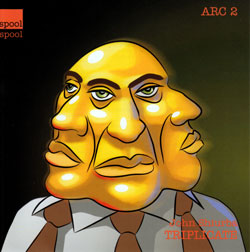
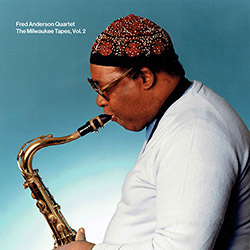

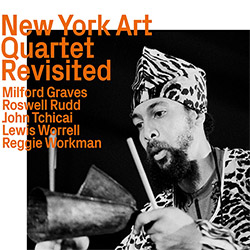


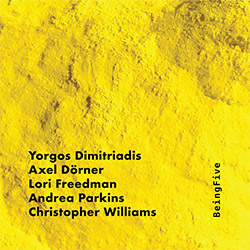

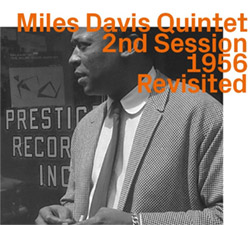

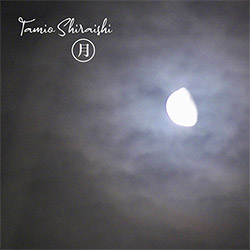
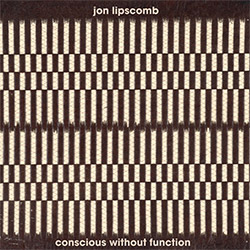

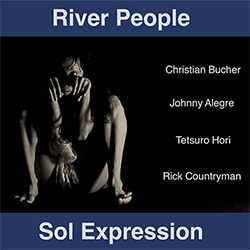
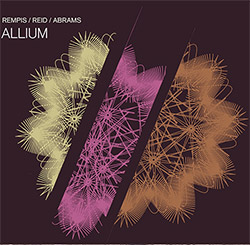
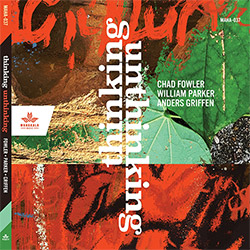
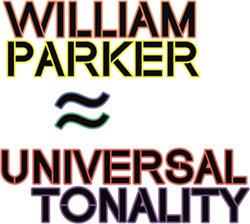


![Guy, Barry / Ken Vandermark: Occasional Poems [2 CDs]](https://www.teuthida.com/productImages/misc4/34849.jpg)
![Novoa / Carter / Mela Trio: Vol.1 [VINYL]](https://www.teuthida.com/productImages/misc4/35236.jpg)


![Elephant9 : Mythical River [VINYL]](https://www.teuthida.com/productImages/misc4/34624.jpg)
![Evans, Peter (Evans / Eldh / Black): Extra [VINYL]](https://www.teuthida.com/productImages/misc4/35279.jpg)

![McPhee, Joe: Straight Up, Without Wings [BOOK]](https://www.teuthida.com/productImages/misc4/35454.jpg)
![Jeck, Philip: rpm [2 CDs]](https://www.teuthida.com/productImages/misc4/35455.jpg)













![Barker / Parker / Irabagon: Bakunawa [VINYL]](https://www.teuthida.com/productImages/misc4/35533.jpg)
![Blaser, Samuel / Marc Ducret / Peter Bruun: Dark Was The Night, Cold Was The Ground [VINYL 10-inch]](https://www.teuthida.com/productImages/misc4/35492.jpg)








![Warren, Kenny (Warren / Hoffman / Ellman): Sweet World [VINYL]](https://www.teuthida.com/productImages/misc4/35451.jpg)




![Blake, Ran / Dave Knife Fabris: Live Amsterdam 2006, First Visit [CD + POSTCARDS]](https://www.teuthida.com/productImages/misc4/35275.jpg)













![DNS: Taking Big Bites Of The Khandas Three Cafes Deep [2 CDs]](https://www.teuthida.com/productImages/misc4/35334.jpg)




![Cleaver, Gerald: The Process [VINYL]](https://www.teuthida.com/productImages/misc4/34966.jpg)




![Alva Noto: HYbr:ID II [VINYL 2 LPs]](https://www.teuthida.com/productImages/misc4/35201.jpg)

![Baron, Derek / Luke Martin: Distinct and Concealed [CASSETTE + DOWNLOAD]](https://www.teuthida.com/productImages/misc4/35079.jpg)

![Lyle, Erica Dawn : Colonial Motels [CASSETTE + DOWNLOAD]](https://www.teuthida.com/productImages/misc4/35080.jpg)









![Sanna, Claudio: Compositori Sardi Contemporanei II [2 CDs]](https://www.teuthida.com/productImages/misc4/35317.jpg)







![Zurria, Manuel: Fame di Vento [3 CDs]](https://www.teuthida.com/productImages/misc4/35167.jpg)

![Granberg, Magnus / Nattens Inbrott / Skogen: Holde Traume, Kehret Wieder! [2 CDs]](https://www.teuthida.com/productImages/misc4/35038.jpg)
![Frey, Jurg: Outermost Melodie [2 CDs]](https://www.teuthida.com/productImages/misc4/35039.jpg)

![Pavone, Jessica: Reverse Bloom [VINYL]](https://www.teuthida.com/productImages/misc4/34895.jpg)




![Modney (Modney / Wooley / Gentile / Roberts / Pluta / Symthe / ...): Ascending Primes [2 CDs]](https://www.teuthida.com/productImages/misc4/34852.jpg)









![Elephant9 with Terje Rypdal: Catching Fire [VINYL 2 LPs]](https://www.teuthida.com/productImages/misc4/35355.jpg)
![Deerlady (Obomsawin, Mali / Magdalena Abrego): Greatest Hits [VINYL]](https://www.teuthida.com/productImages/misc4/34876.jpg)




![Haino, Keiji: Black Blues [2 CDs]](https://www.teuthida.com/productImages/misc4/35109.jpg)



![Surplus 1980: Illusion of Consistency [CD]](https://www.teuthida.com/productImages/misc4/35069.jpg)
![Staiano, Moe: Away Towards the Light [VINYL + DOWNLOAD]](https://www.teuthida.com/productImages/misc4/35037.jpg)



![Caveira (Gomes / Sousa / Abras / Ferrandini): Ficar Vivo [VINYL]](https://www.teuthida.com/productImages/misc4/34643.jpg)
![Gregg, J. J. / David Van Auken: Lunar Prairie [CD w/ DOWNLOAD]](https://www.teuthida.com/productImages/misc4/34611.jpg)

![Coultrain: Mundus [VINYL]](https://www.teuthida.com/productImages/misc4/32439.jpg)
![Mattin: Songbook #6 [VINYL]](https://www.teuthida.com/productImages/misc4/27317.jpg)
![Punkappella: Wake Up [7-inch VINYL]](https://www.teuthida.com/productImages/misc4/17519.jpg)
![Residents, The: WARNING: UNiNC.: Live And Experimental Recordings 1971-1972 [VINYL 2 LPs]](https://www.teuthida.com/productImages/misc4/31521.jpg)
![Coultrain: Phantasmagoria [VINYL]](https://www.teuthida.com/productImages/misc4/30142.jpg)
![Lennon, Sean Ono: Asterisms [VINYL]](https://www.teuthida.com/productImages/misc4/34517.jpg)

![Coley, Byron: Dating Tips for Touring Bands [VINYL]](https://www.teuthida.com/productImages/misc4/17906.jpg)

![Lost Kisses: My Life is Sad & Funny [DVD]](https://www.teuthida.com/productImages/misc4/lostKissesDVD.jpg)